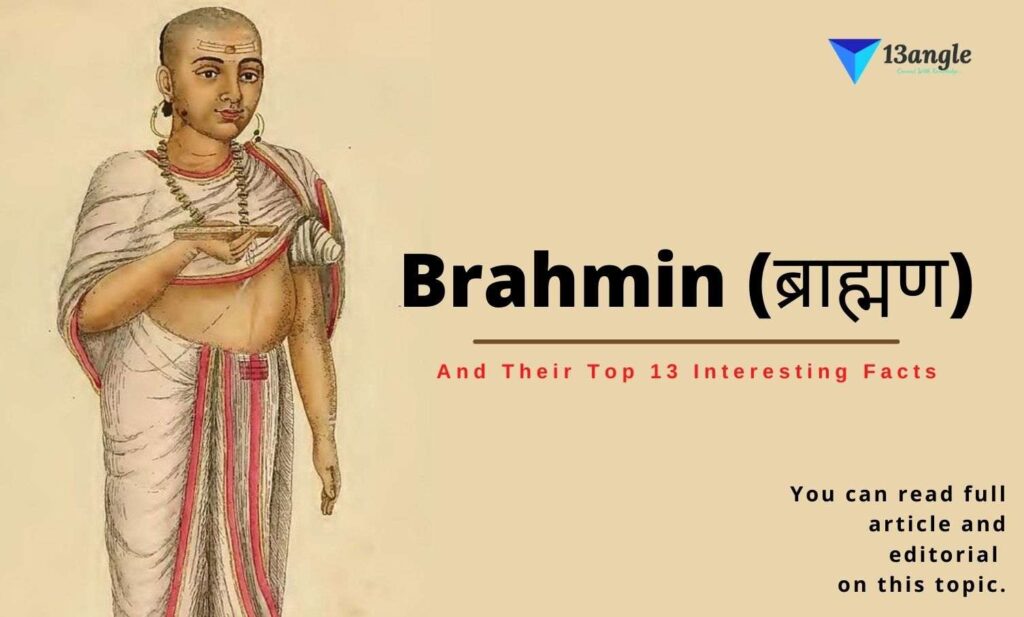Brahminism
Brahminism also called Brahmanism is a religious movement that arose from the Vedic religion and incorporated non-Vedic religious concepts. Brahmanism included not only the Vedic corpus, but also post-Vedic texts such as the Dharmasutras and Dharmasastras, which gave prominence to the priestly (Brahmin) class of society. In the 16th century, Gonçalo Fernandes Trancoso (1520–1596) originated the term Brahmanism. Historically, and still by some modern authors, the term ‘Brahmanism’ was used in English to refer to the Hindu religion.
In 18th & 19th century Brahminism was most common word to refer Hinduism.
Brahminism refers to ultimate reality as mentioned in early Upnishads.
Anti-Brahminism
Anti-Brahminism, also known as “Non-Brahminism,” is a social movement that opposes caste-based discrimination and a hierarchical social structure that positions Brahmins at the top.
According to Gelders and Delders, the structure of modern anti-Brahminism has its roots in nineteenth-century India and colonial perspectives on the position and power of Brahmins.
In the late 19th and early 20th centuries, the criticism against Brahminism came from Brahmins as well as low- caste Hindu community by nationalist and rationalist movements. Anti-Brahminism became organized in late 1916 in Tamil Nadu with the creation of the Justice Party. Non-Brahmins began to rise in the Madras Presidency government after the Justice Party implemented reservation.
The Self-Respect Movement spread anti-Brahmanism among the populace during the 1930s.
R. Ambedkar, a Dalit leader, was one of the strong proponents of Anti-Brahminism.
He stated that:
“By Brahmanism, I do not mean the power, privileges, and interests of Brahmins as a community. That is not the sense in which I am using the word. By Brahmanism, I mean the negation of the spirit of Liberty, Equality, and Fraternity”.
Dravidian leader Periyar E. V. Ramasamy was another vocal supporter. Periyar urged Brahmins and non-Brahmins alike to reject Brahmanism.
Conclusion
By understanding the meaning of Brahminism and Anti-Brahminism, it is clear that Anti-Brahminism is not the reason for driving the intelligent and academically oriented people out of India.
The main reason for this cause is the poor system in India regarding education.
By the statistics, it is clear that brightest students leave India to persue better education and to get better facilities regarding their studies and research. Job is also one of the strong reason for this.
Foreign provides high paying and fast growing career, which is in demand for better life for oneself and one’s family.
Some people also leaves India to bring prosperous and fame for their country (India).
There are many other factors which is responsible for this, but Anti-Brahminism is not one of them. It just some people have a habit to bring religion in every aspect and neglecting the root of the cause.
However, as India is developing, it’s also tackling these problems to stop intelligent and academically oriented people to leave India i.e. brain-drain.






